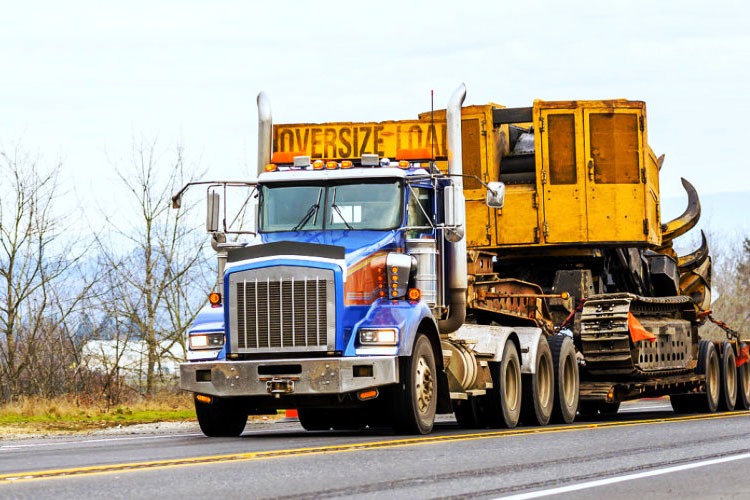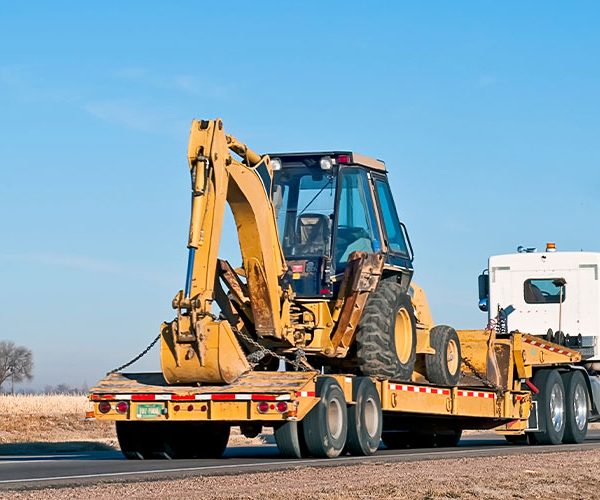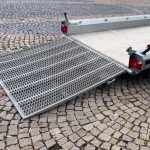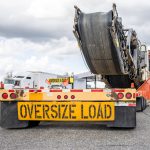Construction projects across the United States rely heavily on specialized machinery to get the job done. From bulldozers shaping the land to asphalt pavers laying down smooth roads, every piece of equipment plays a critical role. But there’s one part of the construction process that’s often overlooked—how these massive machines actually get to the job site. This is where construction equipment shipping becomes an essential part of the industry.
Why Construction Equipment Shipping Matters
Unlike smaller tools and vehicles, moving heavy-duty machinery requires expertise, permits, and specialized trailers. The logistics behind heavy equipment transport are complex because each machine has unique dimensions, weights, and requirements for secure loading. For example, bulldozer shipping may involve lowboy trailers due to its heavy tracks, while dump truck shipping requires attention to balance and height restrictions.
Attempting to move equipment without professional guidance can result in costly damage, delays, or even fines for not meeting state regulations. Professional construction equipment shipping companies understand the rules, routes, and techniques necessary to deliver machinery safely and efficiently.
Types of Construction Equipment That Require Specialized Shipping
The world of heavy equipment is diverse, and so are the transport methods. Here are some of the most common machines requiring specialized care:
• Bulldozer Shipping: With their immense weight and track systems, bulldozers must be carefully loaded onto reinforced trailers that can handle their size and power.
• Road Roller Shipping: Rollers may seem straightforward, but their heavy, compact design requires expert balancing to prevent load shifts during transit.
• Asphalt Paver Transport: Pavers are delicate compared to their size, with conveyor belts and screeds that must be protected from damage.
• Dump Truck Shipping: These vehicles are large and tall, often requiring permits for oversized loads depending on their dimensions.
Each of these machines represents a major investment for contractors. Ensuring they are transported correctly protects both the equipment and the timeline of the project.
The Process Behind Heavy Equipment Transport
Professional transport companies follow a well-defined process to guarantee safe delivery:
1. Assessment & Planning: Before any machine is shipped, experts evaluate its dimensions, weight, and mechanical requirements to determine the right trailer and route.
2. Permit Coordination: Oversized loads often need permits for specific states. Professional carriers secure these permits ahead of time to avoid costly delays.
3. Specialized Equipment: Lowboys, flatbeds, and step-deck trailers are commonly used for construction equipment shipping. The right choice depends on the size and shape of the machinery.
4. Secure Loading: Heavy-duty straps, chains, and protective coverings are used to secure machinery like bulldozers, rollers, or pavers. Safety is the top priority.
5. Delivery & Offloading: Once at the destination, professionals carefully unload the machine, ensuring it’s ready for immediate use.
This level of planning is what separates professional transport from risky DIY solutions.
Common Challenges in Construction Equipment Shipping
Shipping construction machinery across the U.S. isn’t without obstacles. Some of the most common challenges include:
• Oversized Loads: Many machines exceed standard dimensions, requiring specialized permits and escorts.
• Route Restrictions: Low bridges, narrow roads, and weight limits must all be accounted for when planning.
• Weather Delays: Rain, snow, or extreme heat can impact transport schedules and require contingency planning.
• Insurance Needs: Large equipment comes with a high price tag, so comprehensive insurance coverage is a must.
These challenges highlight why contractors turn to experts in heavy equipment transport—they know how to anticipate and resolve issues before they cause delays.
Benefits of Professional Construction Equipment Shipping
Contractors and businesses across the country choose professional shipping services for several key reasons:
• Time Efficiency: Machines arrive on-site when needed, keeping projects on schedule.
• Cost Savings: While DIY might seem cheaper, hidden costs like fuel, maintenance, and potential breakdowns add up quickly.
• Peace of Mind: With professionals handling permits, loading, and delivery, businesses can focus on their core projects.
• Nationwide Reach: Whether it’s a bulldozer in Texas or a road roller in Ohio, professional companies can move equipment anywhere in the country.
By working with experienced transporters, contractors protect their investments and ensure their projects move forward without disruption.
Elevation Transport Services
Beyond highly trained professionals, heavy equipment is the spine of most work sites. It makes impossible tasks possible, and modern businesses just couldn’t operate without it. However, transporting that heavy equipment can be a major hassle. Not with Elevation Transport Services.
At Elevation Transport, we have professional specialists, equipment and vehicles, to transport your heavy equipment to and from job sites safely, on time, and without undue stress. Whether you’re a contractor business looking to ship equipment to a job site, or a homeowner moving homesteads, we will get your heavy equipment to its destination in the most customer-friendly way possible. Call 800-251-9024














